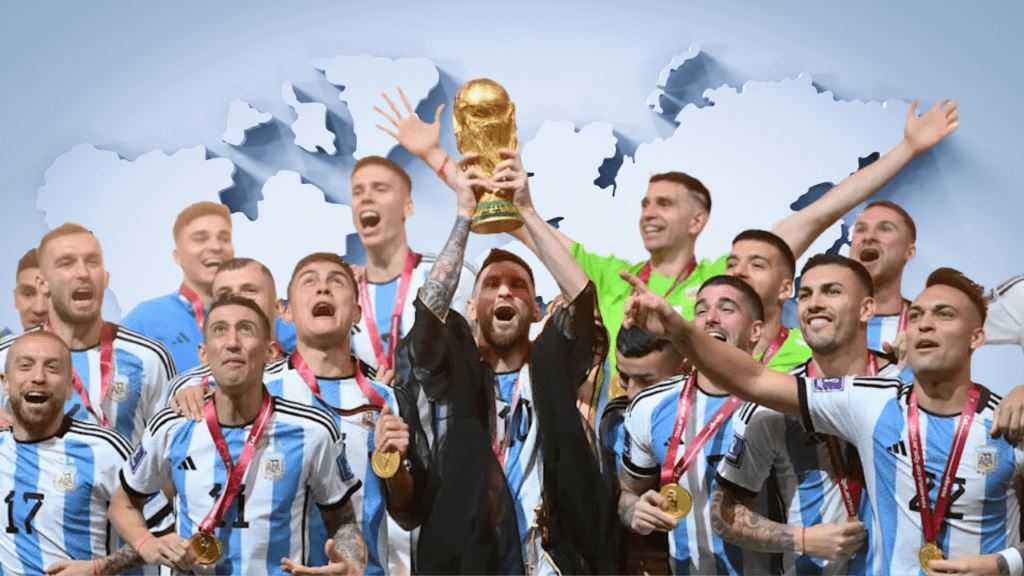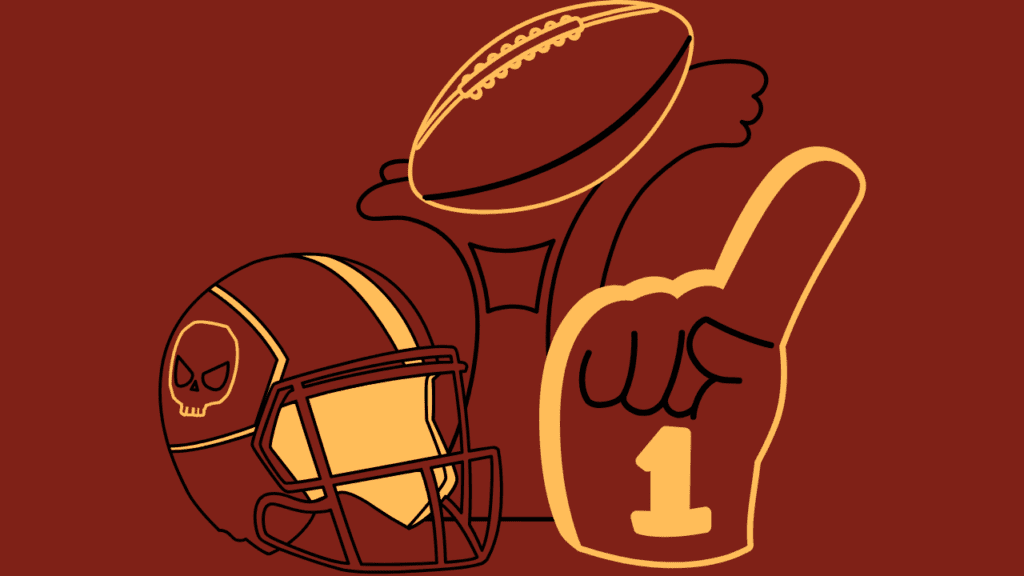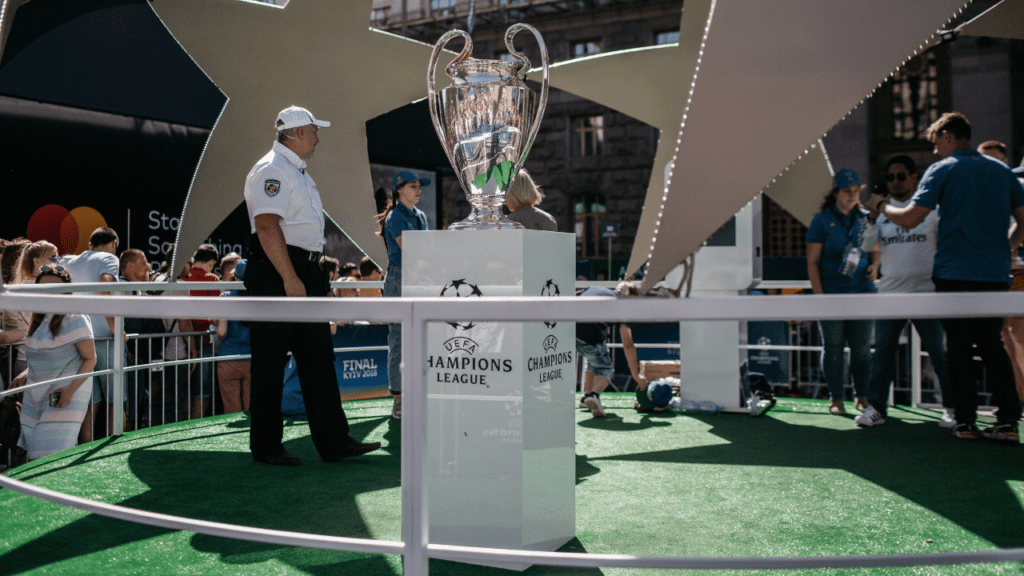Sports events are organized competitions where athletes or teams compete against each other to determine a winner. These events can range from local competitions to international tournaments.
Here are some notable sports events:
- Olympic Games
- FIFA World Cup
- Super Bowl
- UEFA Champions League Final
- Cricket World Cup
- Wimbledon
- Tour de France
- The Masters
- World Series
- The Kentucky Derby
Olympic Games
The Olympic Games are a prestigious international sporting event that takes place every two years, alternating between the Summer and Winter Games.

Here’s a brief overviews:
Summer and Winter Olympics:
The Summer Olympics feature a wide range of sports, including athletics, swimming, gymnastics, and many others. The Winter Olympics focus on cold-weather sports like skiing, snowboarding, ice hockey, and figure skating.
History
The ancient Olympic Games, held in Olympia, Greece, are believed to have started in 776 BC. They were held every four years for nearly 12 centuries. The modern Olympics were inspired by the ancient Games and were initiated by Pierre de Coubertin. The first modern Olympic Games were held in Athens, Greece, in 1896.
International Participation:
Athletes from nearly every country in the world participate in the Olympics, making it one of the most diverse and inclusive sporting events.
Symbolism
The Olympic symbol consists of five interconnected rings, representing the five continents: Africa, America, Asia, Europe, and Oceania. The colors of the rings (blue, yellow, black, green, and red) were chosen because every nation’s flag contains at least one of these colors.
Host Cities
The host city for each Olympics is chosen through a competitive bidding process conducted by the International Olympic Committee (IOC). Hosting the Olympics is a significant honor and brings international attention to the chosen city.
Values
The Olympics are guided by three core values: excellence, friendship, and respect. These values are meant to promote sportsmanship and camaraderie among athletes.
Events and Disciplines
The Summer Olympics typically feature over 300 events across various sports, while the Winter Olympics feature around 100 events. Each sport is divided into different disciplines. For example, track and field is a sport in the Summer Olympics, and within it, there are various disciplines like sprinting, long jump, and javelin throw.
Opening and Closing Ceremonies
The opening and closing ceremonies are elaborate events that showcase the host country’s culture, history, and artistry. They often involve artistic performances, the Parade of Nations, and the lighting of the Olympic flame.
Impact and Legacy
Hosting the Olympics can have a profound impact on a city or country. It can lead to infrastructural development, increased tourism, and a boost in national pride. 10. Challenges:
The Olympics can also face challenges, such as logistical issues, security concerns, and controversies related to politics, doping, and other issues. The Olympics continue to be one of the most-watched and celebrated sporting events worldwide, bringing together athletes and spectators from diverse backgrounds to celebrate the spirit of competition and global unity.
FIFA World Cup
The FIFA World Cup is an international soccer (football) tournament that is considered one of the most prestigious and widely watched sporting events in the world.

Here is an overview of the FIFA World Cup:
Tournament Format
The World Cup is held every four years and features national teams from around the world. Teams compete in a series of matches in a knockout format, culminating in a final match to determine the winner.
History
The inaugural FIFA World Cup took place in 1930 in Uruguay. It was contested by 13 teams. Since then, the tournament has grown in size and significance, becoming a global spectacle.
Qualification
National teams go through a rigorous qualification process to earn a spot in the World Cup tournament. Qualification matches are held within each of FIFA’s continental confederations.
Host Nation
The host nation is selected through a bidding process managed by FIFA. The host is responsible for organizing and funding the tournament. Hosting the World Cup is a major honor and can have significant economic and cultural impacts on the host country.
Participation
The tournament typically features 32 national teams from around the world. Each team represents its country and is composed of professional players, often from various domestic leagues.
FIFA
The tournament is organized by FIFA (Fédération Internationale de Football Association), the international governing body for soccer.
Iconic Trophy
The winner of the World Cup receives the FIFA World Cup Trophy, which is one of the most coveted prizes in sports.
Cultural Significance
The World Cup has a profound cultural impact. It brings together people from different nations, cultures, and backgrounds to celebrate the sport of soccer.
Intense Rivalries
The tournament is known for producing intense rivalries between nations. Matches between historic rivals often draw massive viewership.
Memorable Moments
The World Cup has witnessed numerous memorable moments, including legendary goals, spectacular saves, and historic upsets. These moments become part of soccer lore.
Legacy
Hosting the World Cup can leave a lasting legacy for a country, including improved infrastructure, increased tourism, and a sense of national pride.
Social Impact
The tournament also has the potential to influence social issues, including increased interest and participation in soccer, and can serve as a platform for social and political causes. The FIFA World Cup is a celebration of the global love for soccer, showcasing the highest level of competition in the sport and uniting fans from all corners of the world in a shared passion for the game.
Super Bowl
The Super Bowl is the championship game of the National Football League (NFL), the premier professional American football league in the United States. It is one of the most-watched sporting events worldwide and is known for its elaborate halftime shows and high-profile commercials.

Here’s an overview of the Super Bowl:
Championship Game
The Super Bowl is the culmination of the NFL season and determines the league champion. It is played between the champions of the NFL’s two conferences: the American Football Conference (AFC) and the National Football Conference (NFC).
Roman Numerals
The Super Bowl is traditionally identified by Roman numerals (e.g., Super Bowl LIV for the 54th edition). This practice started with Super Bowl V in 1971.
Annual Event
The Super Bowl is held annually on the first Sunday in February, except in the case of a labor dispute or other unforeseen circumstances.
Halftime Show
The halftime show of the Super Bowl is a major cultural event in itself, featuring performances by A-list artists and entertainers. It often attracts a large viewership and is known for its grand production.
Commercials
The Super Bowl is famous for its high-profile commercials. Companies pay top dollar for ad slots during the game, and these commercials are often highly anticipated and critiqued.
Venue Rotation
The Super Bowl is hosted by different cities and stadiums each year. The host city is determined through a competitive bidding process.
Iconic Trophy
The winning team is awarded the Vince Lombardi Trophy, named after the legendary coach of the Green Bay Packers, who won the first two Super Bowls.
Cultural Phenomenon
The Super Bowl has become more than just a sporting event; it is a cultural phenomenon. It brings together people for parties, gatherings, and festivities centered around the game.
Super Bowl Parties
Many people across the United States and in other parts of the world gather with friends and family to watch the game, enjoying food, drinks, and the halftime show.
Advertising Impact
Super Bowl commercials are often discussed and analyzed for their creativity, impact, and effectiveness. They have even become a significant part of American pop culture.
Legacy and History
The Super Bowl has a rich history and has seen numerous iconic moments, legendary players, and historic plays that are etched into the annals of American football. The Super Bowl is not only a showcase of the highest level of American football but also a significant event in American culture, drawing viewership from sports fans and non-sports fans alike. It has become a platform for entertainment, advertising, and celebration.
UEFA Champions League Final
The UEFA Champions League Final is the pinnacle of European club football. It’s the championship match of the UEFA Champions League, an annual tournament organized by the Union of European Football Associations (UEFA) for the top football clubs in Europe.

Here’s an overview of the UEFA Champions League Final:
European Club Competition
The UEFA Champions League is the most prestigious club competition in European football. It involves the top football clubs from various European leagues.
Tournament Format
The tournament begins with a group stage, followed by knockout rounds leading up to the final. The final match is a one-off game held at a neutral venue.
History
The competition was founded in 1955 as the European Cup and was later rebranded as the UEFA Champions League in 1992. It has since become one of the most watched and followed football tournaments globally.
Qualification
Clubs qualify for the UEFA Champions League based on their performance in their respective domestic leagues. The top clubs from various European leagues earn the right to participate.
Iconic Trophy
The winning team is awarded the UEFA Champions League Trophy, which is a silver cup with a pair of handles that is engraved with the names of the winning clubs.
Prestigious Event
The final is one of the most prestigious matches in world football. It is watched by millions of fans worldwide, making it a global spectacle.
Venue Selection
The host city for the final is selected by UEFA through a bidding process. The chosen city’s stadium must meet specific criteria.
Festivities and Entertainment
The Champions League Final is more than just a football match. It’s a major event with pre-match and halftime entertainment, as well as various ceremonies.
Cultural Significance
The Champions League Final brings together fans from different nations and cultures, creating an electric atmosphere at the stadium and around the world.
Economic Impact
Hosting the Champions League Final can have a significant economic impact on the host city, with increased tourism, hotel bookings, and local spending.
Legends and Iconic Moments
The final has witnessed numerous iconic moments and performances from legendary players, many of whom have etched their names into football history during this event. The UEFA Champions League Final is a celebration of top-level European club football and is eagerly anticipated by football fans around the world. It represents the pinnacle of club achievements in the sport.
Cricket World Cup
The Cricket World Cup is an international cricket tournament that features national teams from around the world. It is one of the most significant events in the sport of cricket.

Here’s an overview of the Cricket World Cup:
Tournament Format
The Cricket World Cup is played in a One Day International (ODI) format, meaning each team has 50 overs (or 300 balls) to bat and bowl.
History
The inaugural Cricket World Cup was held in 1975 in England. Since then, it has become one of the premier events in international cricket.
Quadrennial Event
Initially, the tournament was held every four years. However, there have been exceptions, including back-to-back tournaments in 1987 and 1992.
Participating Teams
The World Cup typically features national teams from cricket-playing nations around the world. The number of teams may vary from tournament to tournament.
Qualification
Teams qualify for the World Cup through a combination of their performance in previous tournaments and regional qualification tournaments.
Iconic Trophy
The winning team receives the Cricket World Cup Trophy, which has become one of the most coveted prizes in the sport.
Venue Rotation
The World Cup is hosted by different countries and cricket stadiums across the globe. The host country is chosen by the International Cricket Council (ICC) through a bidding process.
Cultural Significance
The Cricket World Cup is a major event in cricket-playing nations, often generating a sense of national pride and unity.
High Viewership
The World Cup draws a large global viewership, especially in cricket-loving countries like India, Pakistan, Australia, England, and others.
Memorable Moments
The tournament has seen numerous iconic moments, including dramatic matches, historic performances, and memorable individual achievements.
Legacy
Winning the Cricket World Cup can have a lasting impact on a nation’s cricketing legacy and can lead to increased popularity and participation in the sport.
Women’s Cricket World Cup:
There is also a Women’s Cricket World Cup, which follows a similar format and showcases the best women’s cricketing talent from around the world. The Cricket World Cup holds a special place in the hearts of cricket fans globally. It’s a showcase of the highest level of one-day international cricket and often brings forth intense rivalries, spectacular performances, and moments that become part of cricketing history.
Wimbledon
Wimbledon is one of the four Grand Slam tennis tournaments and is considered one of the most prestigious and historic events in the sport.

Here’s an overview of Wimbledon:
History
Wimbledon is the oldest tennis tournament in the world, with its origins dating back to 1877. It has been held at the All England Lawn Tennis and Croquet Club in Wimbledon, London, ever since.
Grand Slam Status
Wimbledon is one of the four Grand Slam tournaments in tennis, alongside the Australian Open, the French Open, and the US Open. These are the most significant events in professional tennis.
Playing Surface
Wimbledon is played on grass courts, which is a unique feature compared to the other three Grand Slam tournaments. The grass surface can affect the style of play and requires a certain level of adaptability from the players.
Traditions
Wimbledon is known for its rich traditions, including the strict adherence to a predominantly all-white dress code for players, a Royal Box for dignitaries, and strawberries and cream being a popular food choice for spectators.
Singles and Doubles Events
Wimbledon hosts both singles and doubles events for men and women, as well as mixed doubles and junior tournaments.
Prize Money
Wimbledon offers substantial prize money, with the winners of the men’s and women’s singles events receiving a significant share of the total purse.
Queueing
One unique aspect of attending Wimbledon is the tradition of queuing (waiting in line) for tickets, especially for the most popular matches on Centre Court and Court No. 1.
Roofed Courts
Wimbledon has made significant improvements over the years, including the addition of retractable roofs on Centre Court and Court No. 1, allowing play to continue in case of rain.
Iconic Matches
Wimbledon has witnessed some of the most memorable matches and rivalries in tennis history, including the “Battle of the Sexes” between Billie Jean King and Bobby Riggs in 1973, and the epic finals between players like Björn Borg, Pete Sampras, Martina Navratilova, and many others.
Cultural Impact
Wimbledon holds a special place in British culture and is a major sporting event that draws attention from tennis fans worldwide.
Royal Patronage
The tournament enjoys royal patronage, with members of the British royal family often in attendance.
Legacy
Winning Wimbledon is a career-defining achievement for any tennis player, and it cements their place in tennis history. Wimbledon is not only a showcase of top-tier tennis talent but also a celebration of tradition, sportsmanship, and the enduring appeal of grass court tennis. It remains a highlight of the tennis calendar for players and fans alike.
Tour de France
The Tour de France is the most prestigious and famous road cycling race in the world. It is an annual multi-stage race held primarily in France, although it sometimes passes through neighboring countries.

Here is an overview of the Tour de France:
History
The Tour de France was first organized in 1903 by the French newspaper L’Auto as a means to boost circulation. It has since evolved into the most iconic event in professional cycling.
Format
The Tour de France is a three-week long race consisting of a series of individual stages. Each stage is a day’s race, and they vary in length and terrain, including flat stages, mountain stages, and time trials.
Teams and Riders
The race features professional cycling teams from around the world, each composed of several riders. The field typically consists of 20 to 22 teams, with 8 riders per team.
Points of Interest
The Tour de France often includes some of the most scenic and historic sites in France, and occasionally crosses into neighboring countries.
Classification Jerseys
The race includes several classifications: Yellow Jersey (Maillot Jaune) – worn by the overall leader in time. Green Jersey (Maillot Vert) – worn by the points classification leader. Polka Dot Jersey (Maillot à Pois Rouges) – worn by the best climber in the mountains. White Jersey (Maillot Blanc) – worn by the best young rider (under 25).
Iconic Climbs
The Tour de France is known for its grueling mountain stages in the Alps and Pyrenees, which test the riders’ climbing abilities.
Time Trials
Time trials are individual races against the clock. These stages can significantly impact the overall standings.
Champs-Élysées Finish
The final stage of the Tour de France traditionally ends on the Champs-Élysées in Paris. The winner of the race is crowned as the champion of the Tour de France.
Cultural Impact
The Tour de France is deeply ingrained in French culture and has a significant following not only in France but also around the world.
Global Audience
The race attracts a global television audience, with millions of fans tuning in to watch the event each year.
Challenges and Controversies
The Tour de France has faced various challenges and controversies over the years, including doping scandals that have affected the integrity of the race.
Legacy
Winning the Tour de France is one of the most coveted achievements in professional cycling, and it cements a rider’s place in cycling history. The Tour de France is not only a showcase of exceptional athletic ability but also a demonstration of determination, teamwork, and strategy in the sport of cycling. It remains an iconic event in the world of sports.
The Masters
The Masters Tournament, commonly referred to as The Masters, is one of the four major championships in professional golf. It is held annually at the Augusta National Golf Club in Augusta, Georgia, USA.

Here is an overview of The Masters:
History
The Masters was established in 1934 by golf legend Bobby Jones and investment banker Clifford Roberts. It has since become one of the most prestigious events in the sport.
Augusta National
The tournament is held at the Augusta National Golf Club, a private golf course known for its meticulously maintained fairways, challenging greens, and beautiful azalea and dogwood trees.
Invitation Only
Unlike other major golf championships, The Masters is an invitation-only event. It invites a select field of top professional golfers and amateur players based on their performance and achievements.
Green Jacket
The winner of The Masters is awarded a distinctive green jacket, which has become one of the most recognizable symbols in the world of sports.
Par-3 Contest
In the lead-up to the tournament, a Par-3 Contest is held on the Wednesday before the first round. Players compete on a specially designed par-3 course on the grounds of Augusta National.
Amen Corner
One of the most famous stretches of the Augusta National course is known as Amen Corner (holes 11, 12, and 13). It is considered one of the most challenging and picturesque sections in golf.
Iconic Holes
Augusta National is known for its iconic holes, including the par-5 13th (Azalea), the par-3 12th (Golden Bell), and the par-4 11th (White Dogwood), among others.
Champions Dinner
A tradition at The Masters is the Champions Dinner, held on the Tuesday evening before the tournament. The previous year’s winner selects the menu for the dinner.
Tradition and Elegance
The Masters is known for its tradition, including the strict enforcement of a dress code for both players and patrons (spectators).
Global Audience
The tournament attracts a worldwide audience and is one of the most-watched golf events globally.
Impact and Legacy
Winning The Masters is a career-defining achievement for any golfer and often leads to increased recognition, endorsements, and a place in golf history.
Economic Impact
The tournament has a significant economic impact on Augusta, Georgia, and the surrounding areas, attracting visitors and generating revenue for local businesses. The Masters is revered for its rich history, picturesque setting, and the level of prestige it brings to the sport of golf. It remains a highlight on the professional golf calendar, eagerly anticipated by players and fans alike.
World Series
The World Series is the championship series of Major League Baseball (MLB) in the United States. It is a best-of-seven playoff series played between the champions of the American League (AL) and the National League (NL).

Here is an overview of the World Series
History
The first modern World Series was played in 1903 between the Boston Red Sox and the Pittsburgh Pirates. It was a best-of-nine series, which the Red Sox won five games to three.
Championship Format
The World Series is a best-of-seven format, meaning the first team to win four games is crowned the champion.
American League vs. National League
The champions of the American League and National League face off in the World Series. These leagues were originally separate entities, but have been part of MLB since the early 20th century.
Home Field Advantage
The team with home field advantage alternates between the AL and NL champion each year. The league that wins the MLB All-Star Game earns home field advantage in the World Series for that year.
Iconic Moments
The World Series has witnessed numerous iconic moments, including famous home runs, outstanding pitching performances, and dramatic comebacks.
Legacy Players
Many legendary baseball players have left their mark on the World Series, such as Babe Ruth, Mickey Mantle, Willie Mays, and Derek Jeter, among others.
Cultural Significance
The World Series is a significant cultural event in the United States and attracts a large television audience. It has been the stage for some of the most memorable moments in American sports history.
Impact on Cities
Hosting the World Series can have a significant economic and cultural impact on the cities involved, as well as on the teams’ fan bases.
Global Appeal
While the World Series is primarily an American event, it has a global following, with fans from around the world tuning in to watch the championship series.
Fall Classic
The World Series is often referred to as the “Fall Classic” due to its occurrence in October, which is typically the fall season in North America.
Challenges and Controversies
The World Series has seen its share of challenges and controversies over the years, including moments like the “Black Sox Scandal” in 1919 and various other incidents.
Legacy
Winning the World Series is one of the highest honors in professional baseball, and it cements a team’s place in baseball history. The World Series remains a pinnacle event in American sports, showcasing the highest level of competition in professional baseball and creating moments that are cherished by fans and players alike.
The Kentucky Derby
The Kentucky Derby is a prestigious and historic horse racing event held annually in Louisville, Kentucky, United States. It is the first leg of the Triple Crown of Thoroughbred Racing, which also includes the Preakness Stakes and the Belmont Stakes.

Here is an overview of the Kentucky Derby:
History
The Kentucky Derby was first held in 1875 at Churchill Downs in Louisville, making it one of the oldest continuously held sporting events in the United States.
Race Format
The Kentucky Derby is a flat horse race for three-year-old thoroughbreds, meaning the race is contested on a level track with no jumps or obstacles.
Distance
The race covers a distance of one and a quarter miles (or about 2,012 meters).”The Most Exciting Two Minutes in Sports”:
The Kentucky Derby is often referred to as “The Most Exciting Two Minutes in Sports” due to the approximate time it takes for the race to be completed.
Iconic Trophy
The winning horse is awarded the Kentucky Derby Trophy, a silver trophy with a horse and rider at its center.
Fashion and Tradition
The Kentucky Derby is known for its extravagant fashion, with attendees wearing elegant hats and stylish attire. It’s a tradition that dates back to the early years of the event.
Mint Julep
The Mint Julep is the traditional drink of the Kentucky Derby. It consists of bourbon, sugar, water, and fresh mint leaves, served over crushed ice in a silver or pewter cup.
Iconic Song
“My Old Kentucky Home” is a song traditionally played at the Kentucky Derby, and it holds great sentimental value for many attendees.
Contenders and Favorites
The Kentucky Derby attracts the best three-year-old horses from around the world. Betting on the race is a significant part of the event, with fans wagering on their favorites.
Derby Festival
The Kentucky Derby is part of a broader event known as the Kentucky Derby Festival, which includes various activities and events leading up to the race.
Cultural Significance
The Kentucky Derby is a significant cultural event in the United States, drawing spectators and participants from all walks of life.
Impact on Louisville
Hosting the Kentucky Derby has a substantial economic impact on Louisville, as it brings in visitors, boosts tourism, and supports local businesses. The Kentucky Derby is not only a showcase of top-tier horse racing talent but also a celebration of tradition, elegance, and the enduring appeal of this historic event. It remains a highlight of the American sporting calendar, eagerly anticipated by horse racing enthusiasts and spectators alike.
Read More:









Comments are closed.